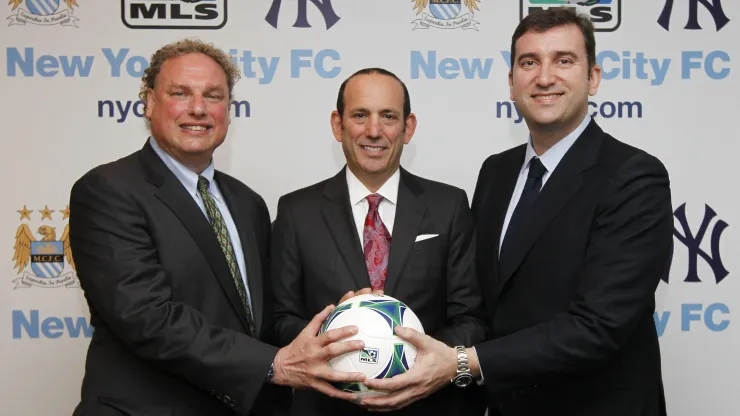The past few weeks have been tumultuous ones for America’s top professional soccer division. Instead of slowly transitioning the league’s marketing to its new superstars and priming the way for its new high-profile clubs, the top office has instead been sidetracked by controversy. The Frank Lampard “will he or won’t he” and “was he ever” has again thrust the league into the spotlight as “the retirement league” and not a growing global alternative to the traditional European power leagues.
The New York City FC situation (and to a lesser extent Beckham Miami) has shown that instead of looking forward, the league continues to fight the battles of the past. MLS is still trying to puff out its chest in its marketing and portray itself as on par with a major European league, which leads to them overstating older players coming to play in the States. New franchises are awarded based on the highest bidder and not on the most solid business plan that benefits the league itself. In fact, the current front office almost feels like it is playing the same game as it did in the mid-2000s.
By doing this, the commissioner is failing to address looming challenges that could undermine MLS’s progress. Despite their attempts to ignore it, NASL is building a good business plan that could pose as great a challenge to MLS domestically as any overseas league. Negotiations with the players’ union is ongoing but it is hard to ignore how restricted players are in wages and movement in the name of league survival; at some point, these players making $40,000 a year are going to want higher wages and the ability to play for a MLS team for which they want to play. While it seems like the return of many US national team players is positive for the league, the simmering tension between Jurgen Klinsmann’s philosophy and that of MLS will very soon to come a head and my suspicion is the long sought-after coach who wants total control will win out in Sunil Gulati’s mind. This list doesn’t even include trends affecting other leagues that could be here soon, like fan relations, and the transition from terrestrial sports viewing to online freemium content.
Publicly, MLS is failing to really touch any of these major issues. Instead it wants to be seen as signing Steven Gerard and attending press conferences of millionaires whose cities are given notice not from a strategic plan but from flashing quick cash. While this may have been a successful strategy for MLS 2.0, it will make MLS 3.0 a much more difficult challenge to surpass.
200+ Channels With Sports & News
- Starting price: $33/mo. for fubo Latino Package
- Watch Premier League, Women’s World Cup, Euro 2024 & Gold Cup
The New Home of MLS
- Price: $14.99/mo. for MLS Season Pass
- Watch every MLS game including playoffs & Leagues Cup
Many Sports & ESPN Originals
- Price: $10.99/mo. (or get ESPN+, Hulu & Disney+ for $14.99/mo.)
- Features Bundesliga, LaLiga, Championship, & FA Cup
2,000+ soccer games per year
- Price: $5.99/mo
- Features Champions League, Serie A, Europa League & Brasileirāo
175 Premier League Games & PL TV
- Starting price: $5.99/mo. for Peacock Premium
- Watch 175 exclusive EPL games per season






